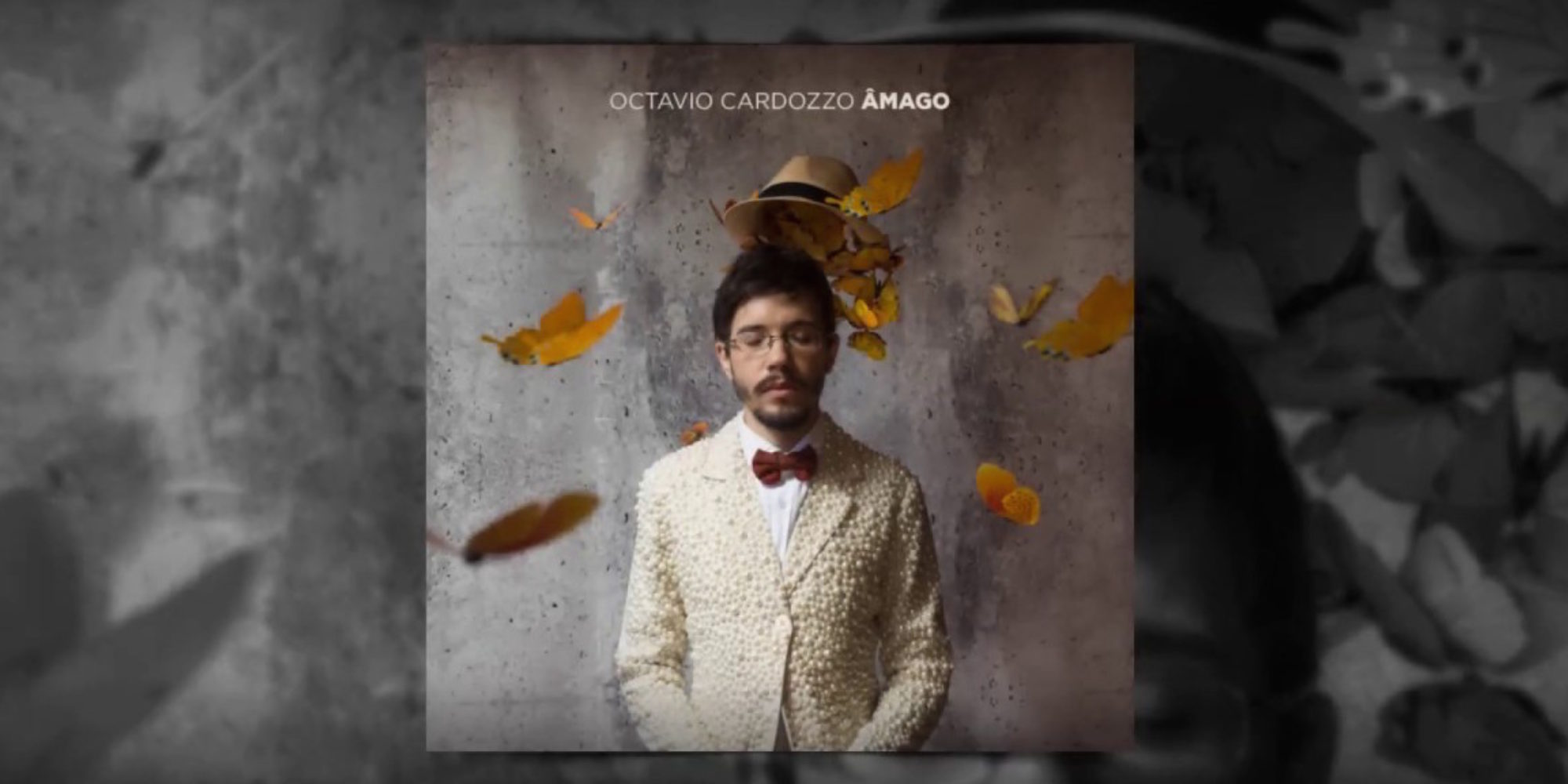You can get a sense of yourself by looking in a mirror, but Octavio Cardozzo is betting that sometimes you get a better sense of yourself by looking to others. The 27-year-old singer and composer's first solo album, Âmago, is a collection of previously unreleased songs mostly written by his peers in Brazil's independent music scene, centering in Cardozzo's home base of Belo Horizonte.
The resulting record fits into Belo Horizonte's musical history dating back to Milton Nascimento's famous Clube da Esquina records from the '60s: Âmago shifts capably and even playfully between genres. And like Nascimento's records, if one gets a picture of Brazil from this record, it differs in a pronounced way from the impression painted by records in Rio de Janeiro and São Paulo, drawing from the inland city's jazz and rock scenes rather than samba or bossa nova.
The album opens with “Desinício,” which translates to “Discontinuation.” The song has an OK Computer-era Radiohead atmospheric quality and an OK Computer-era Radiohead message: The modern world is driving us all insane and we need a reset. Rather than exploding into angst like their British counterparts, Cardozzo and his band take a harsh turn out to a funk upbeat and a resolve to divert their destiny.
The second track, “Parada Multicor,” puts a flickering guitar line over a stuttering, shuffling beat. The song and its horn section grows more and more frenetic, in what seems to be a celebration of life's many colors and also the album's first of many celebrations of the body. It's followed by “Anatomia,” a swaying, playful lounge-jazz duet with fellow Belo Horizonte musician Marcelo Veronez that seems to be a celebration—or maybe a backhanded insult?—of weird male bodies. “Uma Proposta” tells the story of a proposition. The electronic musician Renato Mendes penned “Baleia,” while the singer-songwriter Elisa Pretinha wrote the acoustic song that follows “Silhueta.”
Cardozza explained that he wanted to create a very Brazilian record, modern but also narrative like the heavy hitters of popular Brazil music. He also wanted to use other people's songs, to better understand what moves him, what attracts him. In working with his friends and contemporaries, Cardozza has not only created a fun, inventive album, but also a sort of index of Belo Horizonte's indie scene. As the album liner, filled with pictures of Cardozzo smiling with his bandmates, seems to attest, there may have never been a more communally oriented “solo album.”









